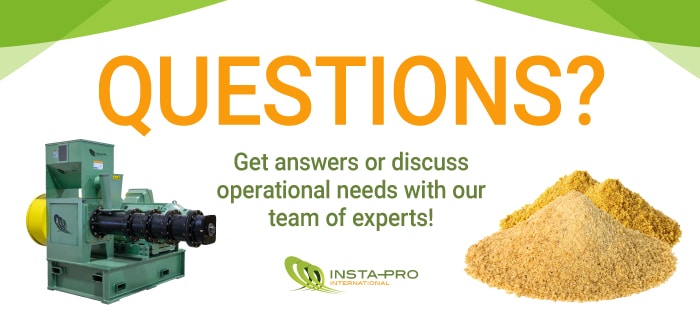What are My Options to Produce Clean Feed?

There has been a continuous effort by the feed, the animal industry and food industry to eliminate (or at least reduce) the source of salmonella and other pathogens’ contamination of food.
The link between feed, farm and food is well recognized as stated by Alan Doyle of Anitox in his article “The Role of Feed in Controlling Salmonella in Pigs” dated May 29, 2012 in the magazine All About Feed.
Yes, the animal industry in general, and poultry industry in particular, made great progress in reducing the problem of salmonella in feed through the use of strict quality control procedures. These include the use of:
- Anti-microbial chemicals
- Heating the feed through steam preconditioning and expansion-extrusion
- Birds and rodents control
- Cross contamination from other sources including visitors or working force
For feed manufacturers providing organic and/or chemical-free feed, there is another option that has been practiced. Many specialty feed manufacturers owning a high shear extruder have practiced this for several years. This involves the use of High Shear Extrusion of the main ingredients, simply stated, the corn, soybean meal, animal by-products (if any) and whole soybeans.
For example, a combination of 70% corn or sorghum and 30% soybeans when extruded will produce an ingredient containing over 20% crude protein and 6% oil. The product is completely sterile as it exits the extruder and can satisfy the requirement of pig starter feed after supplementation with milk whey, vitamin-trace mineral source and flavors.
The High Shear Extrusion technology was studied for his ability to inactivate turkey rotavirus, turkey astrovirus, coccidia, bacteria, and in particular, salmonella spp.
According to Dr. Don Reynolds, DVM., Ph.D., and his group of researchers of the Veterinary Medical Research Institute at Iowa State University, feed material subjected to the extrusion process would produce a sterile product that will not pose a potential problem of transmitting infectious agents.
Based on this study and other university research trials on the subject, the FDA Center for Veterinary Medicine granted a no objection letter to use this type of extrusion for processing various by-products as acceptable feed ingredients.



